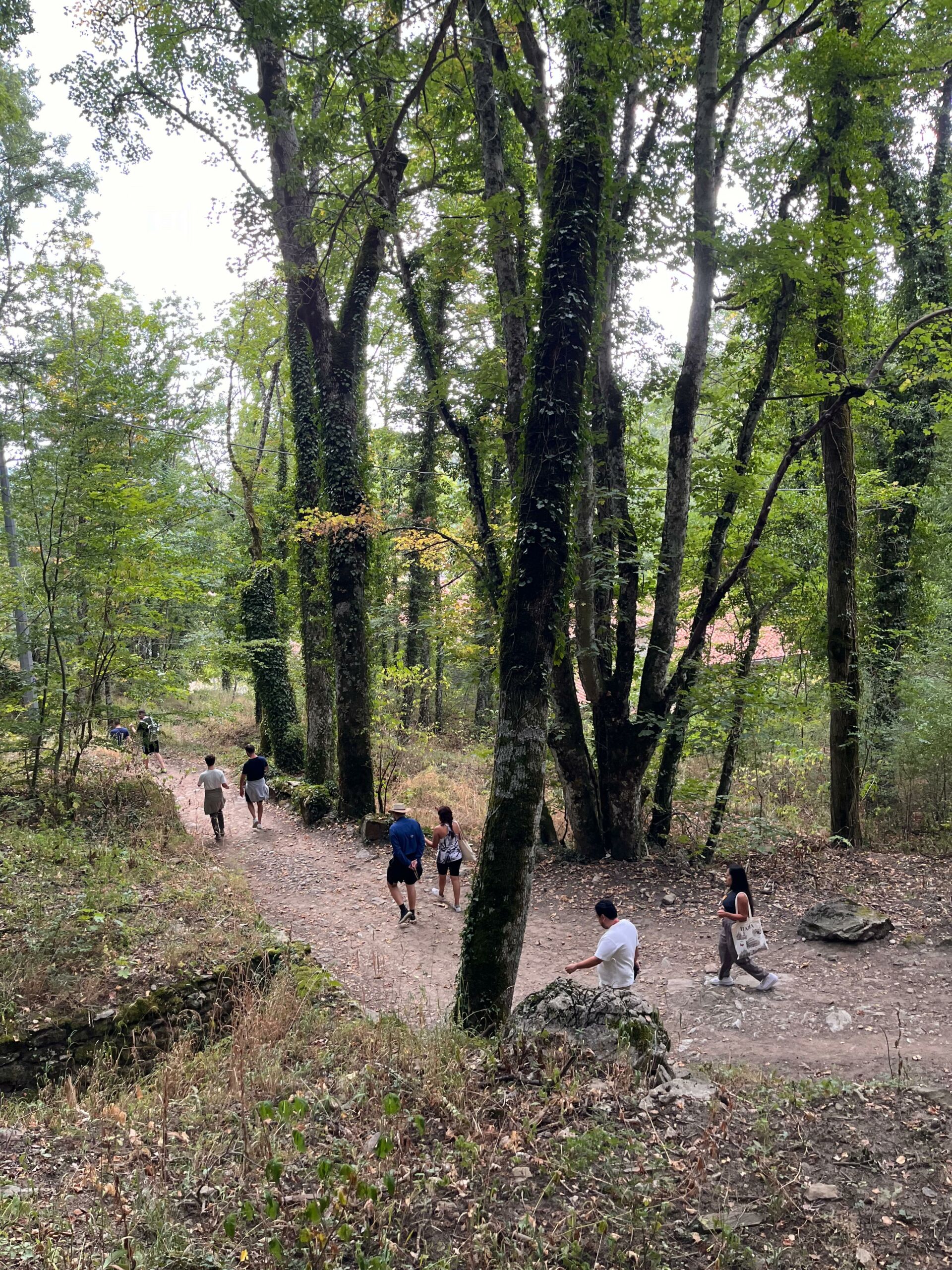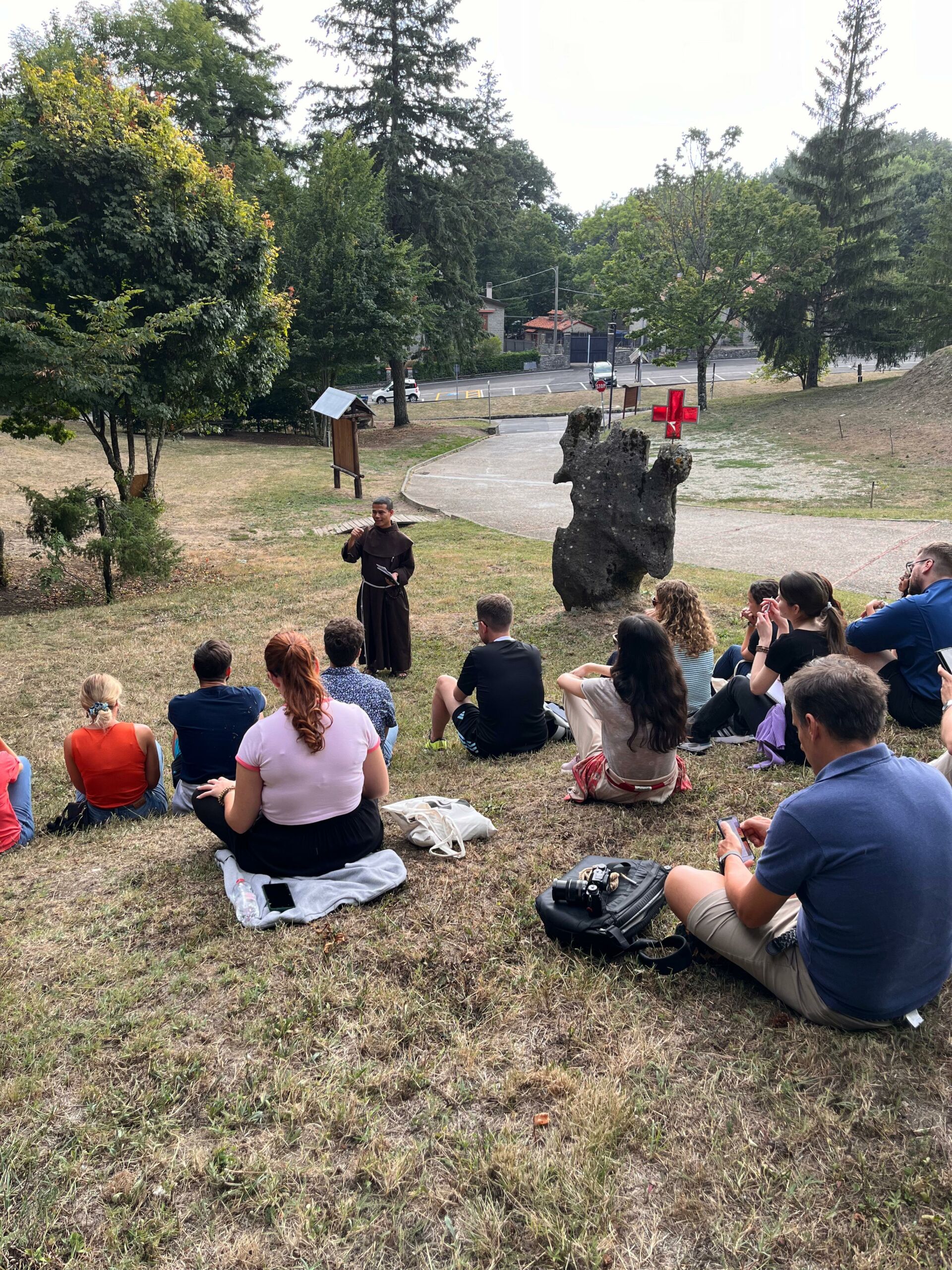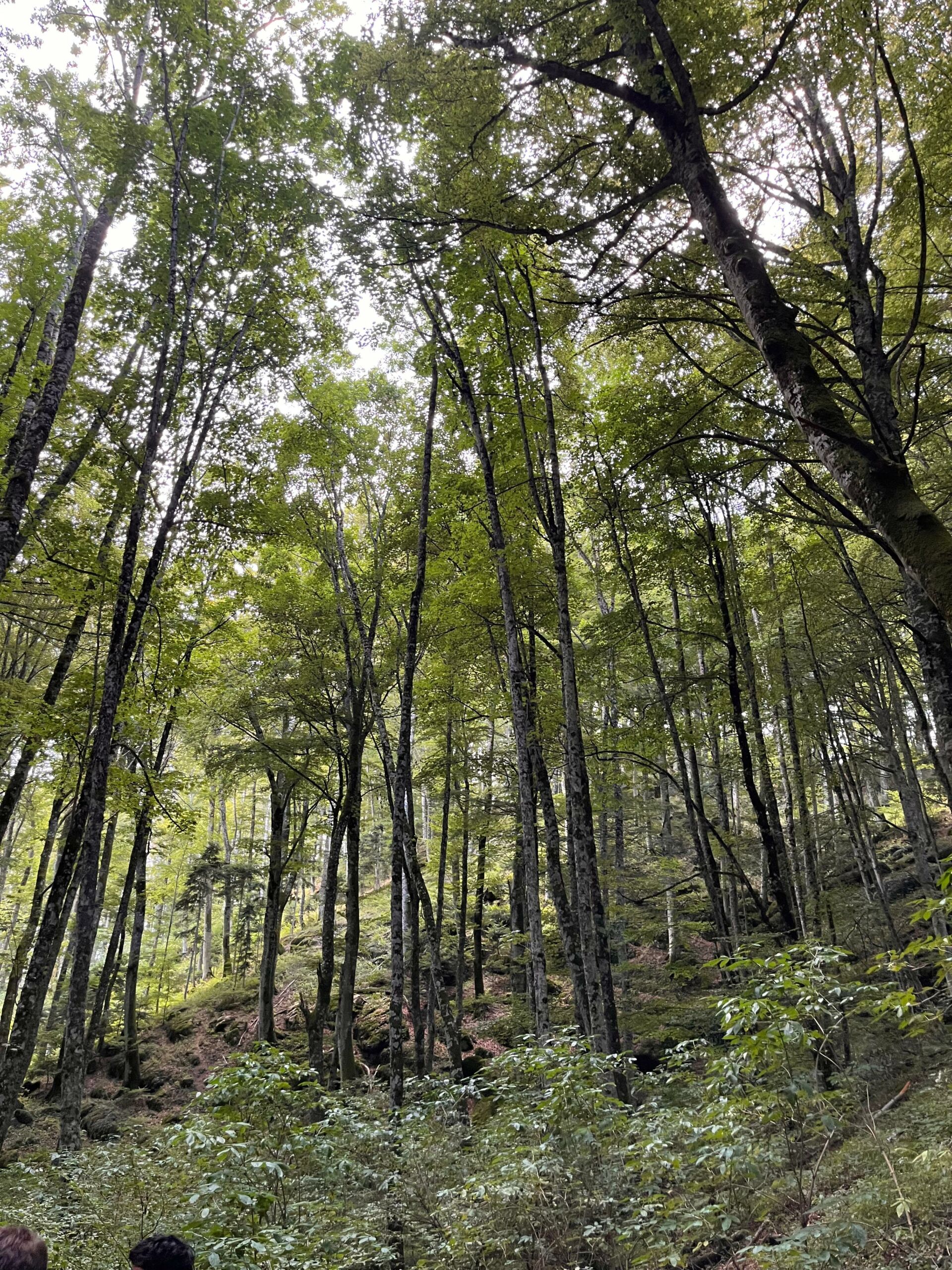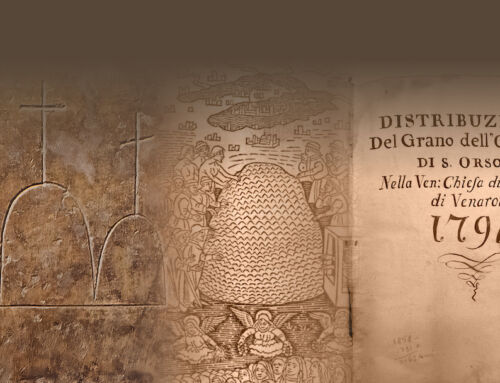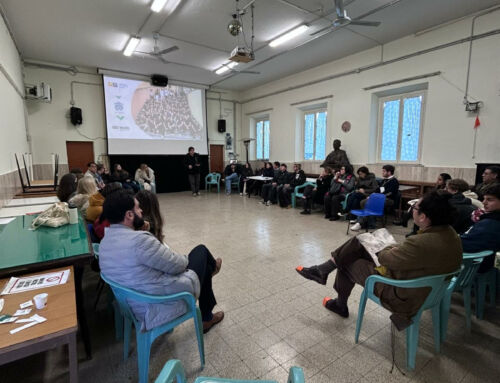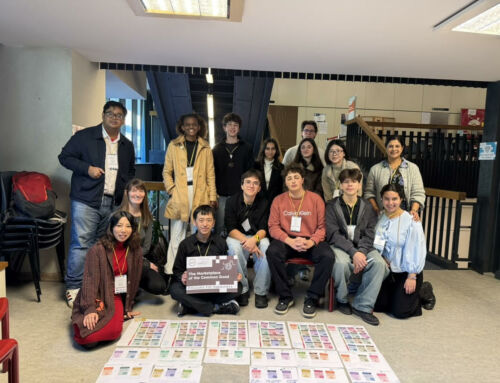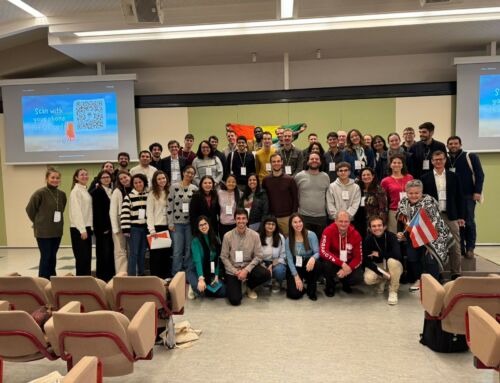Journey to an Economy of Peace
by Luca Iacovone
In a world where conflicts and inequalities seem to dominate the economic and social landscape, building an economy of peace becomes an urgent need. The economy of peace is not just an abstract or utopian concept, but a concrete one that requires commitment, sacrifice and, above all, a new paradigm: that of the journey. Pope Francis underlined the importance of this approach in the message he entrusted to the young people of the Economy of Francesco on October 6, 2023, an invitation to rethink the global economy starting from the journey, from the movement, from leaving one’s physical and mental boundaries.
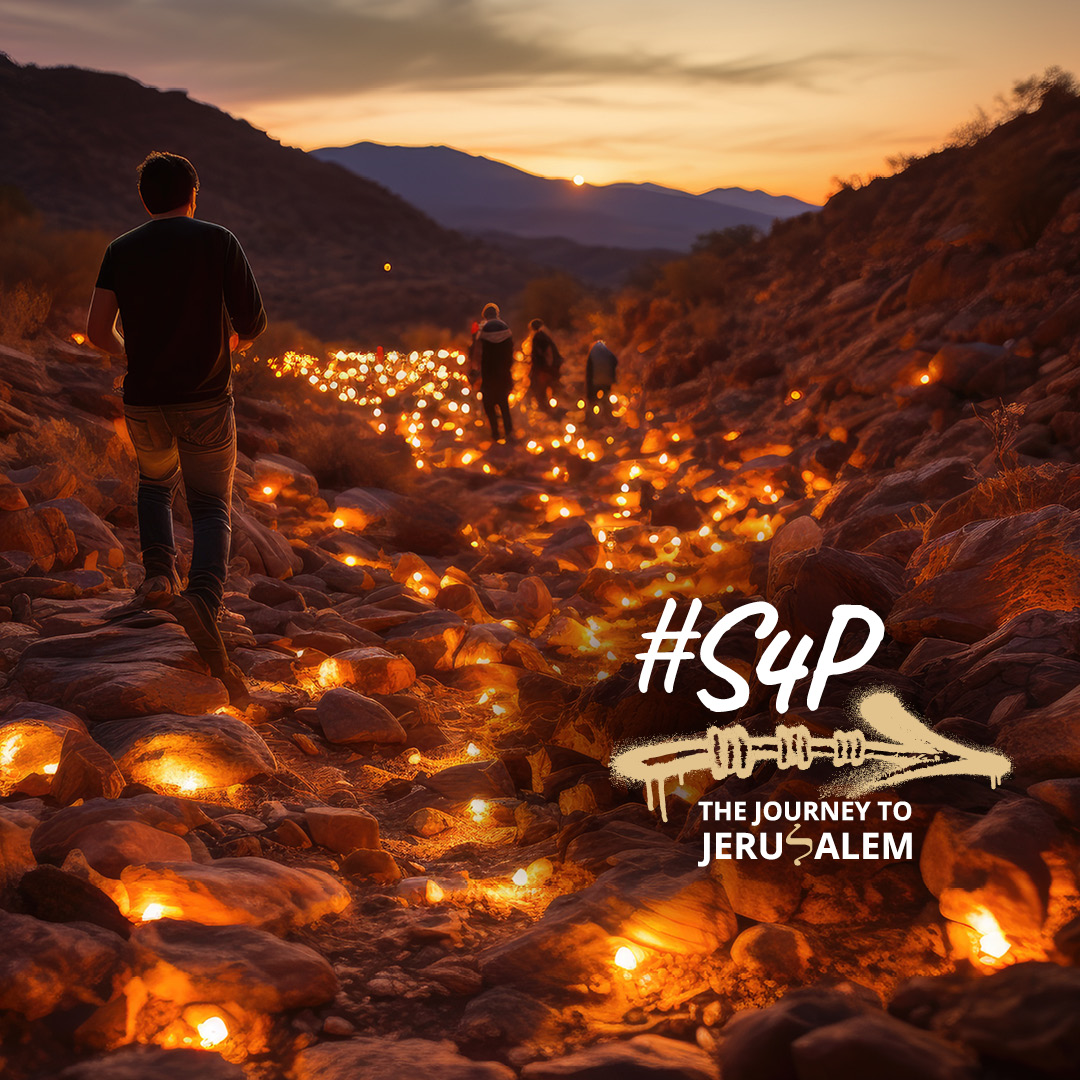
The Economy as a Journey
Pope Francis reminds us that the economy as a journey is rooted in the experience of Jesus and the first disciples, described in the Gospels as “those of the way.” This is not a minor detail, but a sign of a profound spiritual and social truth: the journey, with its uncertainties and vulnerabilities, is a process of interior and exterior transformation. The journey requires trust, dependence on others and a radical openness to encounter. In Pope Francis’ message, the journey becomes a powerful metaphor for the economy. An economy that journeys is an economy that does not remain anchored to rigid positions or selfish interests, but moves toward the other, recognizing its interdependence with other disciplines and knowledge.
The journey, however, is not without difficulties. It is a “dusty” road, as the Pope describes it, in which one gets one’s hands dirty and faces tensions and conflicts. But it is precisely in this getting one’s hands dirty that one finds the key to building an economy of peace. Justice, charity and solidarity are not abstract ideals, but concrete realities that are lived and embodied in daily life. An economy of peace is an economy that is not afraid to face the challenges and contradictions of our time, but one that inhabits and humanizes them.
The journey: from practice to economic model
For decades, marches for peace have been a powerful symbol of resistance and hope. People from all over the world take to the road to demand an end to conflicts, to demand a better future, to bear witness to the possibility of peaceful coexistence. But the march cannot be limited to a simple protest. It must become an organizing principle of the economy itself. An economy that journeys is an economy that becomes a pilgrim, one that recognizes its own fragility and the need to meet others. It is an economy that moves away from the comfort zone of exasperated competition and the accumulation of wealth to embrace sharing, mutual care, and cooperation.
The economy of peace, thus conceived, requires a radical change of perspective. As long as we remain stuck in our initial positions, in our homes and cities, we see the other as a threat, someone who can take away our resources or rights. But when we set out on a journey, when we leave our “land” to venture into common ground, the other becomes a resource, an asset, a possibility for growth and exchange. The journey forces us to recognize that we possess nothing in an absolute way, that everything is interdependent, and that the common good is built only through participation and shared responsibility.
Protecting the common home: the courage of the journey
The economy of peace is also an ecological economy. Pope Francis, in his encyclical Laudato si’, invited us to care for our common home, to recognize the inseparable link between social justice and environmental justice. This message was reiterated to the youth of the Economy of Francesco: building an economy of peace also means having the courage to protect the planet, to adopt sustainable lifestyles, and to put at the center the good of the earth and the future generations. In this sense, the journey is also a call to sobriety, simplicity, and to the awareness that every step we take has an impact on the world around us.
Conclusion
Building an economy of peace from the paradigm of the journey means embarking on a collective path towards a more just and inclusive future. It means to abandon the egoistic certainties in order to open oneself to the vulnerability of encountering the other. It means getting our hands dirty in building an incarnated justice and living reciprocity as a daily practice. Only in this way can we hope to transform the global economy into a true instrument of peace capable of responding to the challenges of our time. No one is excluded from this journey: we are all called to set out with courage, confidence and hope.

